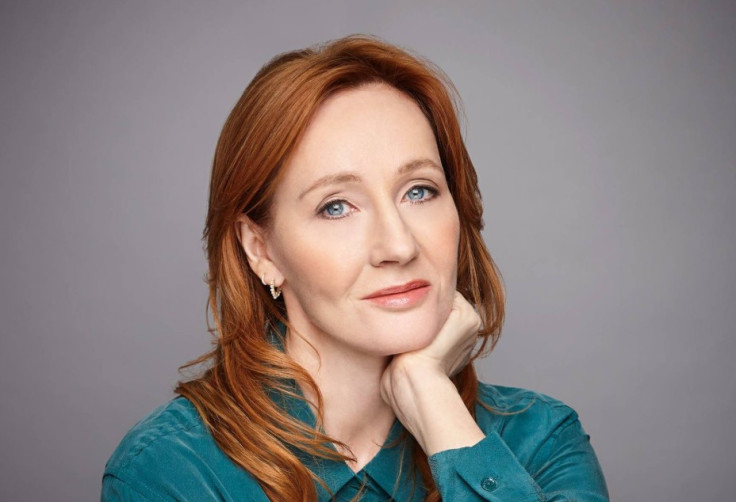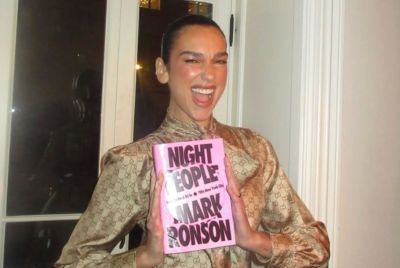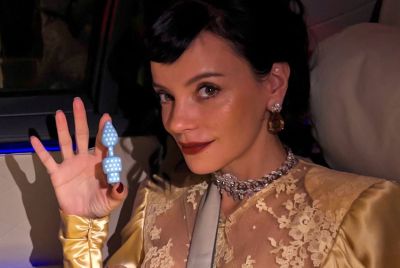JK Rowling vs Emma Watson: Harry Potter Feud Deepens as Author Accuses Stars of Acting as 'De Facto Spokespeople'
Rowling's 700-word tirade accuses Watson and Daniel Radcliffe of acting as 'de facto spokespeople' for Harry Potter, deepening the creative rift between author and stars.

The long-running rift between J.K. Rowling and the stars of the Harry Potter films has burst open again, revealing a cultural battle over who now speaks for the wizarding world.
Rowling may have created the story, but actors Emma Watson and Daniel Radcliffe have increasingly become its moral voices.
What is emerging is a creative divorce: the characters and their values live on in the public imagination, while the author has become a far more divisive figure.
Watson's Interview Sparks Fresh Debate
Last week, Emma Watson appeared on the Jay Shetty Podcast and reflected on her complicated relationship with Rowling. The actress struck a conciliatory tone, saying she still 'treasures' the author despite their disagreements.
'It's my deepest wish that I hope people who don't agree with my opinion will love me, and I hope I can keep loving people who I don't necessarily share the same opinion with,' she said.
Watson acknowledged she does not agree with Rowling's stance on transgender rights but regretted that they had never sat down for a proper conversation. Her words seemed intended to soften tensions, but they had the opposite effect.
Rowling's 700-Word Response
On Monday, Rowling posted a 700-word statement on X, rejecting Watson's comments and accusing her and Daniel Radcliffe of overstepping.
'I'm not owed eternal agreement from any actor who once played a character I created,' Rowling wrote. 'The idea is as ludicrous as me checking with the boss I had when I was twenty-one for what opinions I should hold these days.'
She continued: 'Emma and Dan in particular have both made it clear over the last few years that they think our former professional association gives them a particular right, nay, obligation, to critique me and my views in public. Years after they finished acting in Potter, they continue to assume the role of de facto spokespeople for the world I created.'
Rowling revealed that Watson once sent her a handwritten note during a period when the author was facing death and rape threats.
The note read, 'I'm so sorry for what you're going through.' Rowling described it as inadequate and even hurtful.
'Emma had just publicly poured more petrol on the flames, yet thought a one line expression of concern from her would reassure me of her fundamental sympathy and kindness,' she said.
I'm seeing quite a bit of comment about this, so I want to make a couple of points.
— J.K. Rowling (@jk_rowling) September 29, 2025
I'm not owed eternal agreement from any actor who once played a character I created. The idea is as ludicrous as me checking with the boss I had when I was twenty-one for what opinions I should... https://t.co/c0pz19P7jc
I'm already missing @intel_lady's Angela Rayner,
— J.K. Rowling (@jk_rowling) September 26, 2025
but I'm here for ALL the spoofs🤣 https://t.co/2jdtD9MYw7
The author also questioned Watson's perspective, suggesting her privilege shields her from real-world consequences of the policies Rowling opposes.
'Like other people who've never experienced adult life uncushioned by wealth and fame, Emma has so little experience of real life she's ignorant of how ignorant she is,' Rowling wrote.
She argued that Watson would never face the realities of homelessness, mixed-sex hospital wards or state-run crisis centres.
'I wasn't a multimillionaire at fourteen. I lived in poverty while writing the book that made Emma famous,' she added.
The Franchise Outgrows Its Creator
The exchange has once again underscored how the Harry Potter franchise has evolved beyond its author.
For millions of fans, Watson and Radcliffe represent the values they associate with the wizarding world: inclusivity, empathy and courage in the face of intolerance.
Both actors have spoken repeatedly in support of trans rights, effectively recasting the series as a symbol of acceptance.
Rowling, by contrast, has become more entrenched in her gender-critical activism. She founded Beira's Place, a women's support centre in Edinburgh that excludes trans women, and launched the JK Rowling Women's Fund to support legal challenges on sex-based rights.
To her supporters, she is a defender of women's rights. To her critics, she is undermining the very spirit of her own books.
This dynamic, where actors and fans become custodians of a franchise's meaning, is hardly new. As with other cultural giants like Star Wars or Marvel, ownership is no longer just about authorship.
Instead, it lies in the collective imagination of audiences and the moral authority of the people who brought those characters to life.
A Fractured Legacy
Rowling concluded her post by insisting she has as much right to speak as the actors who criticise her.
'Emma is rightly free to disagree with me and indeed to discuss her feelings about me in public,' she wrote. 'But I have the same right, and I've finally decided to exercise it.'
As HBO prepares a new Harry Potter television series, the rift between Rowling and her stars has never been more visible.
For some, separating the art from the artist remains the easiest way forward. For others, Watson and Radcliffe have become the true moral heirs of the franchise.
Rowling wrote the books, but in the eyes of many fans, it is the actors who embody the magic's lasting message. The battle for Harry Potter's legacy now seems less about who created it, and more about who defines what it means today.
© Copyright IBTimes 2025. All rights reserved.




















